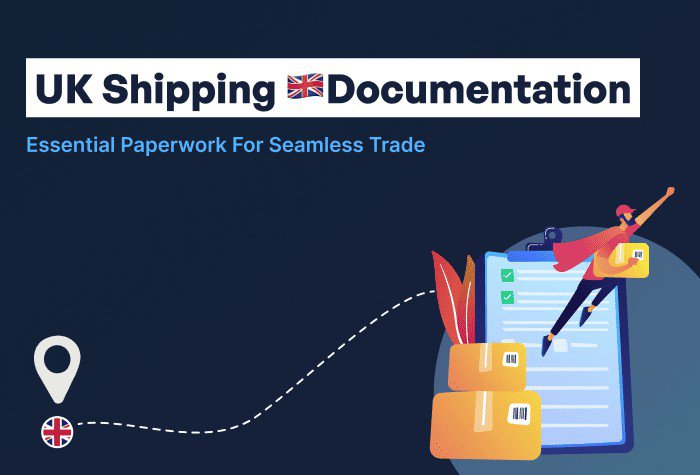
Efficient shipping to and from the UK requires a well-prepared documentation checklist to ensure smooth customs clearance, compliance with regulations, and successful financial transactions. Missing or incorrect paperwork can lead to delays, penalties, and extra costs. This guide provides a structured breakdown of the key documents needed for UK imports and exports, helping businesses streamline their shipping process.
1. Essential Documents for Importing into the UK
A. Customs Clearance Documents
Customs Declaration (C88 Form/SAD)
- Submitted electronically via the UK’s Customs Declaration Service (CDS) or CHIEF.
- Includes shipment details such as value, origin, and classification.
EORI Number (Economic Operator Registration and Identification)
- Mandatory for businesses importing goods into the UK.
- Required before submitting a customs declaration.
Commodity Code (Tariff/HS Code)
- Determines the correct duty and VAT rate for imported goods.
- Must be accurately declared to avoid misclassification penalties.
Bill of Lading (B/L) or Air Waybill (AWB)
- Serves as a contract between the shipper and carrier.
- Required for cargo release at the destination port.
Commercial Invoice
- Details transaction information, including buyer/seller details, product descriptions, and declared value.
Packing List
- Provides information on the quantity, weight, and type of goods in the shipment.
Import Licenses & Special Certifications
- Necessary for restricted goods like food, chemicals, and electronics.
Sanitary and Phytosanitary (SPS) Certificates (if applicable)
- Required for plant, animal, and food-related imports.
VAT & Duty Payment Records
- Importers must ensure VAT and duty payments are settled before clearance.
2. Essential Documents for Exporting from the UK
A. Export Compliance Documents
Export Declaration (C88 Form / NES Submission)
- Filed via the Customs Declaration Service (CDS) for all exports.
EORI Number
- Required for UK businesses exporting goods internationally.
Bill of Lading (B/L) or Air Waybill (AWB)
- Issued by the shipping line or freight forwarder.
Packing List
- Provides shipment details to customs authorities.
Commercial Invoice
- Essential for customs clearance in the destination country.
Certificate of Origin (if applicable)
- Determines preferential tariff rates under trade agreements.
Export Licenses & Permits
- Required for regulated goods such as pharmaceuticals and defense equipment.
Insurance Certificate
- Proof of cargo insurance coverage for damages or losses.
Dangerous Goods Declaration (if applicable)
- Required for shipments containing hazardous materials.
3. Financial Documentation for UK Shipments
Letter of Credit (LC)
- Guarantees payment security between buyer and seller.
Proforma Invoice
- Preliminary invoice issued before shipment for cost estimation.
Payment Receipts & Customs Duty Records
- Proof of advance payments and duty settlements.
4. Compliance Considerations for UK Trade
Post-Brexit Trade Documentation
- UK businesses must follow new border and customs procedures for EU shipments.
- VAT treatment and trade agreements have changed, requiring careful compliance.
Digitalization in UK Trade
- The UK is moving toward electronic documentation, reducing paperwork processing times.
- Electronic Bills of Lading (eB/L) and automated customs declarations streamline trade operations.
Conclusion
Having a complete set of documents is crucial for hassle-free imports and exports in the UK. Missing paperwork can lead to shipment delays, penalties, and additional costs. By using digital solutions like FreightMango, businesses can manage their shipping documents efficiently, ensuring smooth cross-border trade.
For expert guidance and simplified shipping, get started with FreightMango today!





 Get instant quote
and compare offers in real time
Get instant quote
and compare offers in real time